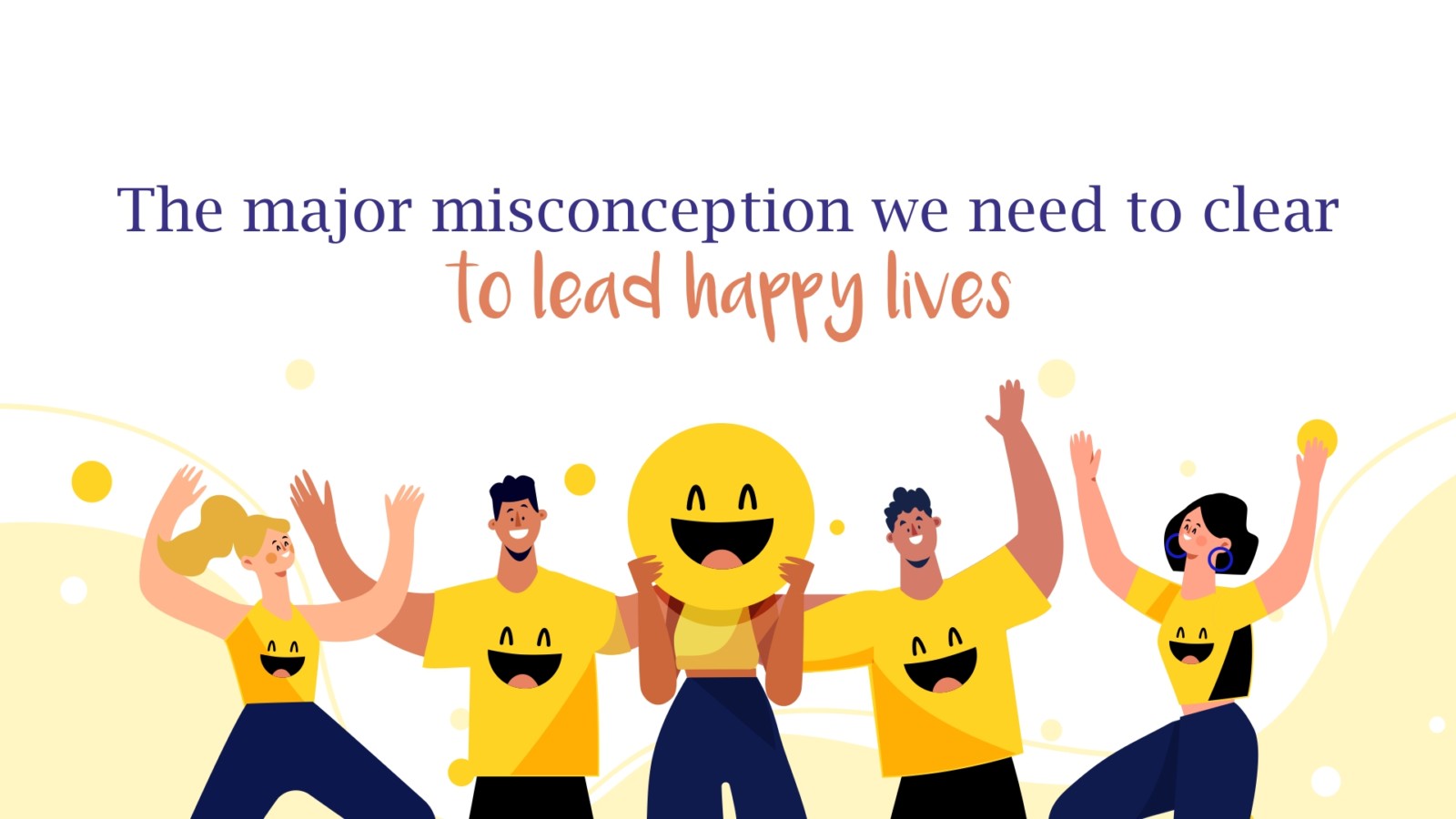Society and mainstream media have altered our perception of a happy life, which is why many of us feel that the pursuit of a high-paying career is the same as the pursuit of happiness. But just as the movie ‘The Pursuit of Happyness’ shows us, and as I have discussed in some of my other blogs, happiness often lies in the places we least expect to find it.
In most cases, earning more money has little to do with living a happy life. Our relationship with money may be one of the biggest detractors in the pursuit of happiness. In a recent conversation with Raj Raghunathan, a professor of marketing and author of the book, ‘If you’re so smart, why aren’t you happy?’, we discussed why people today are not as happy as they expect to be and what they can do to find happiness.
Raj, who is also a ‘happiness researcher’, is extremely fascinated by the concept of happiness; he believes that it should be the highest value and goal that every human being aspires to achieve. However, during his research and experiences, he had found that despite saying they want to aspire to be happy, most humans seem to do the complete opposite of what they need to do to be happy—that they behave in manners that detract from the actual pursuit of happiness.
The affluent and rich version of success that we idolize and work towards is almost irrelevant to being happy; aspects like social status and material possessions, which are highly cherished, do more to make us seem happy than it does to help us be happy.
What do you see when you think of being happy?
Is happiness too abstract a concept for most of us to visualize? Do we chase after ‘success’, instead of happiness, because we can tangibly feel, see and measure those things?
People, today, seem to be sacrificing happiness for the sake of extrinsic elements like power, fame, money, etc. Although it is not entirely correct to say that these elements do not boost your happiness levels, there is a line that we can draw between requiring these elements and obsessing over them.
Raj says that money, for example, is a good means to alleviate suffering from a lack of basic needs. It improves your quality of life and therefore improves your happiness level. That being said, when our requirements of money change into a ‘want’, or worse—greed, for more money, it takes a toll on our happiness. Eventually, the more money, fame or power we have, and the more we chase after them, the less happy we become. Simply put, status and wealth do improve our happiness, but beyond a certain threshold, our pursuit of them may result in us putting our health, relationships, values and time—factors that contribute to our happiness—at risk.
“One day you will wake up and there won’t be any more time to do the things you always wanted. Do it now.” – Paulo Coelho
Why do we put our happiness at risk?
Nobody considers being frazzled and stressed out by having too much to do, spreading themselves too thin and experiencing time scarcity a good thing. Yet, the reason we fall into these traps is due to the subversive relationships created between them and happiness. We are told that if we work hard and sacrifice our health, relationships and time, we will eventually be acknowledged and given ‘tokens of gratitude’ like raises and promotions that will help us acquire more money, fame and happiness.
And when we do get these tokens of gratitude, we remember the short bursts of happiness that we feel. We forget the toll it takes on us and how it takes us away from a higher state of happiness. Once the happiness fades away, we try harder to get another promotion while fooling ourselves into believing that when we receive it, our happiness will somehow last longer.
We are the ones who make the choice, and most of the time, we are the ones who make the mistake. Even though various studies and research tell us that happiness, gained from pursuing these goals, is mostly short-lived, we continue to strive for it because we know that by doing so, we can get an immediate fix of happiness, even if it does not last long. We continue to go down the path of temporary happiness while hoping that it will not be fleeting. This path is heavily influenced by romanticised notions put forward by society. These notions convince us that our dreams should be what everyone acknowledges, that the monetary version of success is the goal that everyone desires.
However, we do not need to let anyone else decide our priorities. We can aspire to be different. Happiness is not the same for everyone, but a few consistent aspects help contribute to it. Taking care of our physiological, emotional and mental health, ensuring a decent quality of life, discovering hobbies, following interests, and finding our purpose are some elements that contribute towards being happy. The main idea, however, is to follow our heart, not money. When we take into consideration what truly makes us happy, we will not be fooled by what others try to tell us should make us happy.
Do you do what makes you happy?


